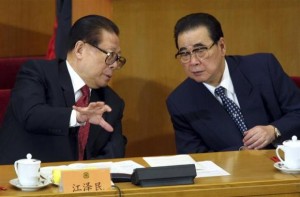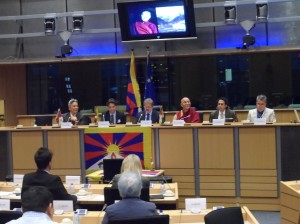The Spanish parliament has voted in favour of limiting its Universal Jurisdiction law over international crimes, irrespective of where they are committed, to cases against a Spaniard or foreign citizen who is on Spanish soil. Spain’s universal jurisdiction law works on the principle that crimes against humanity can be prosecuted across borders. This new limit on universal jurisdiction comes after the Spanish High Court’s recent issue of arrest warrants against five Chinese leaders on charges of genocide in Tibet.
On February 10, the Spanish High Court ordered Interpol to issue arrest warrants for five Chinese leaders under the doctrine of its universal jurisdiction law, including former Chinese President Jiang Zemin, as part of a probe into alleged genocide in Tibet. Ismael Moreno, the High Court Judge, wrote in his ruling: “Jiang exercised supervisory authority over the people who directly committed abuses, which make him responsible for acts of torture and other major abuses of human rights perpetrated by his subordinates against the people of Tibet.” The ruling would allow the arrest of the five Chinese leaders while travelling or passing through any of the countries that have signed the extradition treaty with the Spanish government.
Immediately after the High Court ruling, China contacted the Spanish embassy and expressed its displeasure over the charges levelled against the leaders, hinting at jeopardised trade relations. Spain’s economy, which is not strong, is partly dependent on trade with China. China called the ruling and issue of arrest warrants an “erroneous act by the Spanish agencies in regard of China’s position”.
China’s response and threat of disruption of trade between the two countries is being cited as the major reason behind the Spanish parliament’s decision to impose limits on its universal jurisdiction law.
The court’s decision to issue arrest warrants follows lengthy proceedings which started in 2005, when a Spanish pro-Tibetan rights group asked the court to hold seven Chinese state leaders responsible for crimes against humanity allegedly committed by the Chinese government in Tibet. The law has in the past charged many international leaders of crimes against humanity including the former Chilean dictator Augusto Pinochet.
Apart from former Chinese President Juing Zemin, the other leaders charged by the High Court are: Li Peng, Prime Minister during the repression in Tibet in the 80’s; Qiao Shi, former head of Chinese security; Chen Kuiyuan, Party secretary in the Tibet Autonomous Region from 1992 to 2001, and Deng Delyun, minister of family planning in the 1990s.






 Print
Print Email
Email